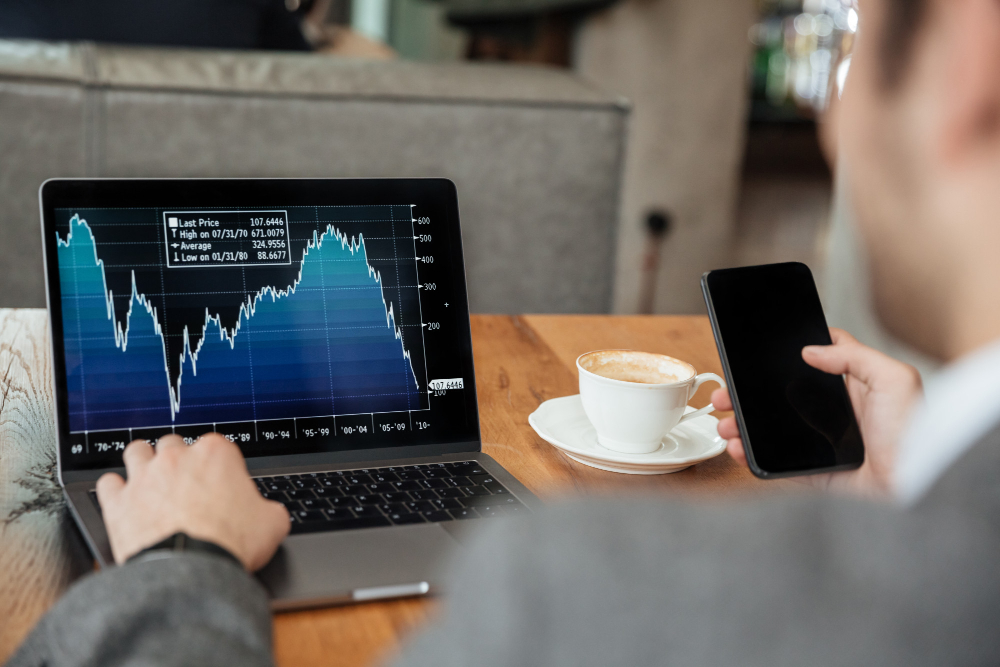The vast majority of equity investors tend to focus on developing their skills in individual stock selection, which is a difficult and time consuming endeavour. Not only that, but it is also an extremely difficult and inefficient way to increase wealth. Whilst we have all heard the stories of the “bloke next door who made a fortune buying XYZ stock at 40 cents and sold it at $10.00”, the reality is these situations are few and far between. They often occur as much as a result of luck as of any specific trading strategy, or because they happen to be privy to some market information that may not be known to the vast majority of market participants. (We also do not hear about the picks that were disastrous!)
Two of the main reasons that most active investors fail in their endeavours to grow their capital through a ‘stock picking mentality’ are:
1. Placing too much emphasis on individual trades and
2. Not persisting with strategies that they start using.
Because investors have difficulty persisting with, or rather, remaining consistent in their execution of particular strategies, they are not successful in the markets over sustained periods of time. “I tried that once and it didn’t work!” or “It worked for a while!” are their claims to anyone prepared to listen to their negative anecdotes.
Part of the reason that they do not persist and the main reason that they fail with active investing is their inability to raise their thinking threshold to investing at the portfolio level. They operate at the ‘stock picking’ level, putting all their energy and time into trying to pick a winner or more appropriately, trying NOT to pick a loser!
Successful active investors raise their level of thinking to the ‘big picture’ level, that is, the portfolio level. Practically this is done by focusing on the overall equity curve rather than individual trades. The outcome of individual trades is of no concern to the successful active investor who objectively defines entry and exit points to individual trades regardless of whether the previous individual trades were winners or losers. They have this mindset because they know and fully accept, as a part of who they are, where profit and loss trades fit into their overall big-picture trading approach.
They focus on the outcome of the combination of trades over a large sample over a long period of time. This is their edge in the market. The larger the sample, the higher the statistical reliability is of achieving the outcome of a researched edge. The equity curve that results from the large sample of trades is what is of utmost importance to the consistently successful active investor.
Developing a mindset that allows you to focus on the overall performance of your trading strategy over a long period of time requires a significant change in thinking for the majority of traders and investors. The results of individual trades need to be seen in the context of overall portfolio performance over a large trade sample. In the long run, the results of individual trades will be long forgotten as the equity curve of the trading system increases in value.
By placing less emphasis on individual stock selection and concentrating instead on the selection of a robust trading system, the investor comes to realise that no system will always work across all market conditions all the time. What becomes more relevant is the need to develop a mindset of acceptance of this fact. And an understanding that a system with a defined and consistent ‘edge’ in the market will be far more profitable over the long term than the majority of attempts to “pick’ stocks on an individual basis. Trading systems that have a positive win:loss ratio coupled with a positive expectancy will always outperform the overall market over the long term.
Those investors that have developed this mindset also know and accept that the system will have times when it is out of sync with the market. In SPA3‘s case, money management rules reduce a portfolio’s exposure by taking investors into cash. New entry points become somewhat limited due to the SPA3 criteria not being met in the medium term. During this time it is important to remain focused and not be dragged into the negativity that will begin creeping into the financial press and the psyche of the vast, uneducated, and unprepared majority of so-called investors.
So, my question to you is “Are you concerned about the outcome of each individual trade, or do you trade with a set of well-defined unambiguous rules that you trust will deliver an equity curve that will handsomely outperform the market index regardless of the outcome of individual trades?”



2 Responses
Very much appreciated. This is good customer service as I am always busy and do not refer to the text books every day.
Keep up the good work and Thanks Gary
DR
Glad you are enjoying the service Dave. Happy and here to help.
Ta
Sean Baker
market and Sales Manager